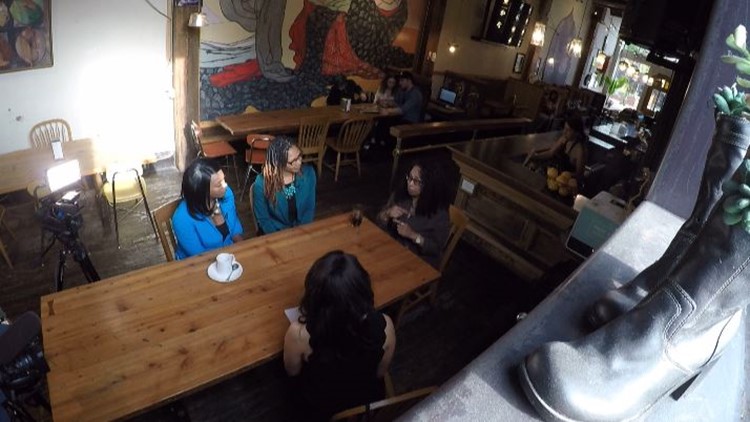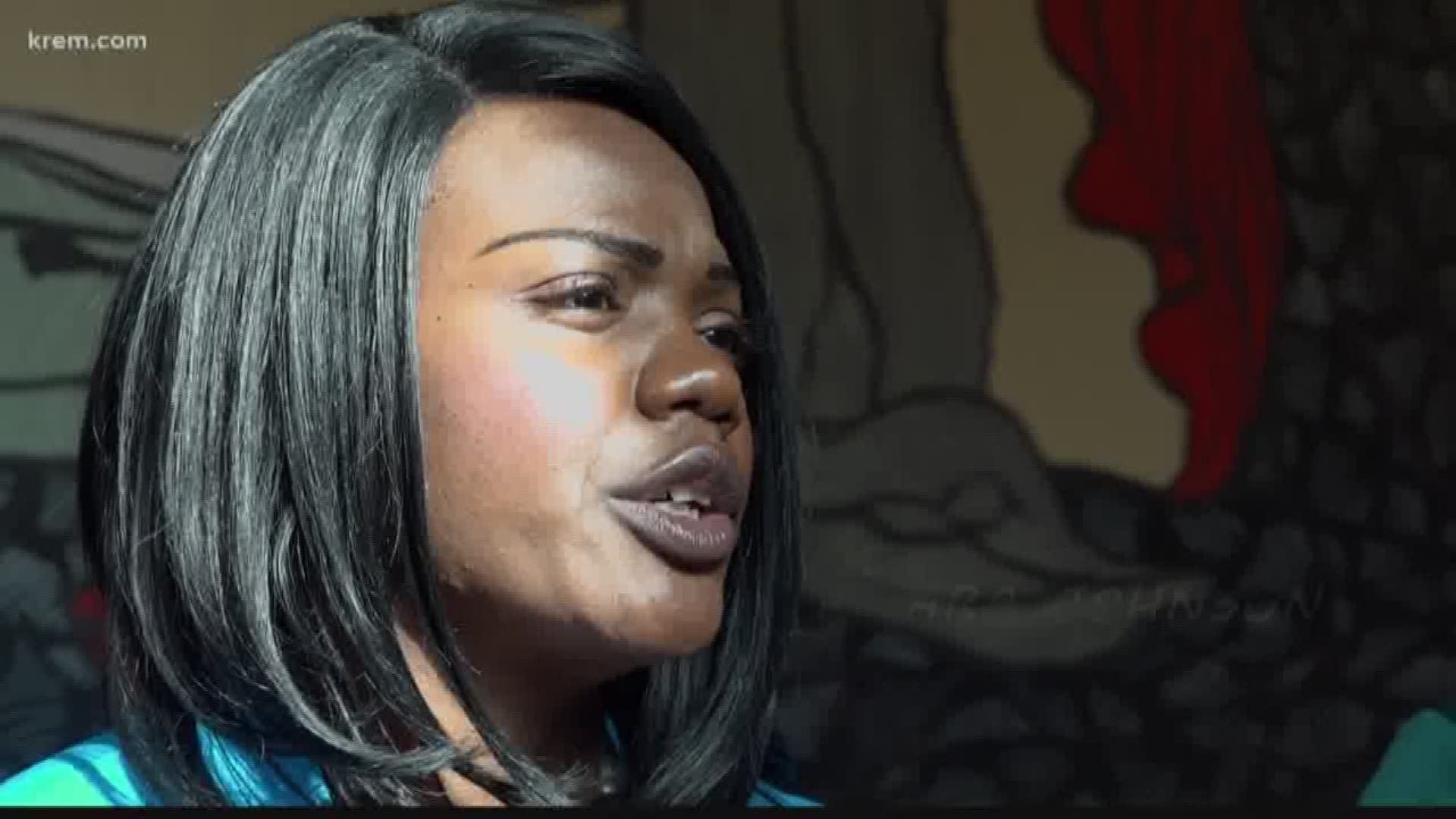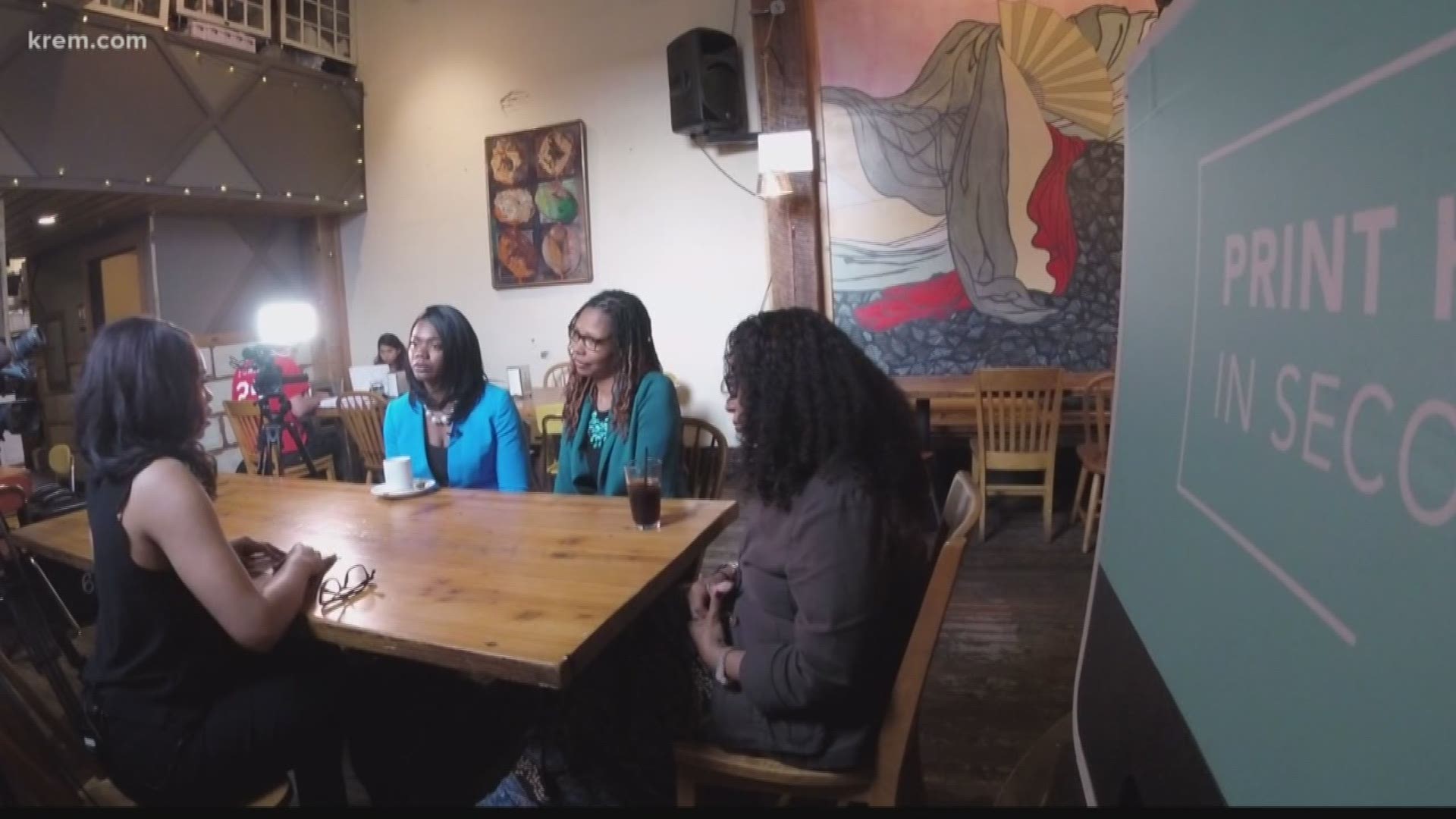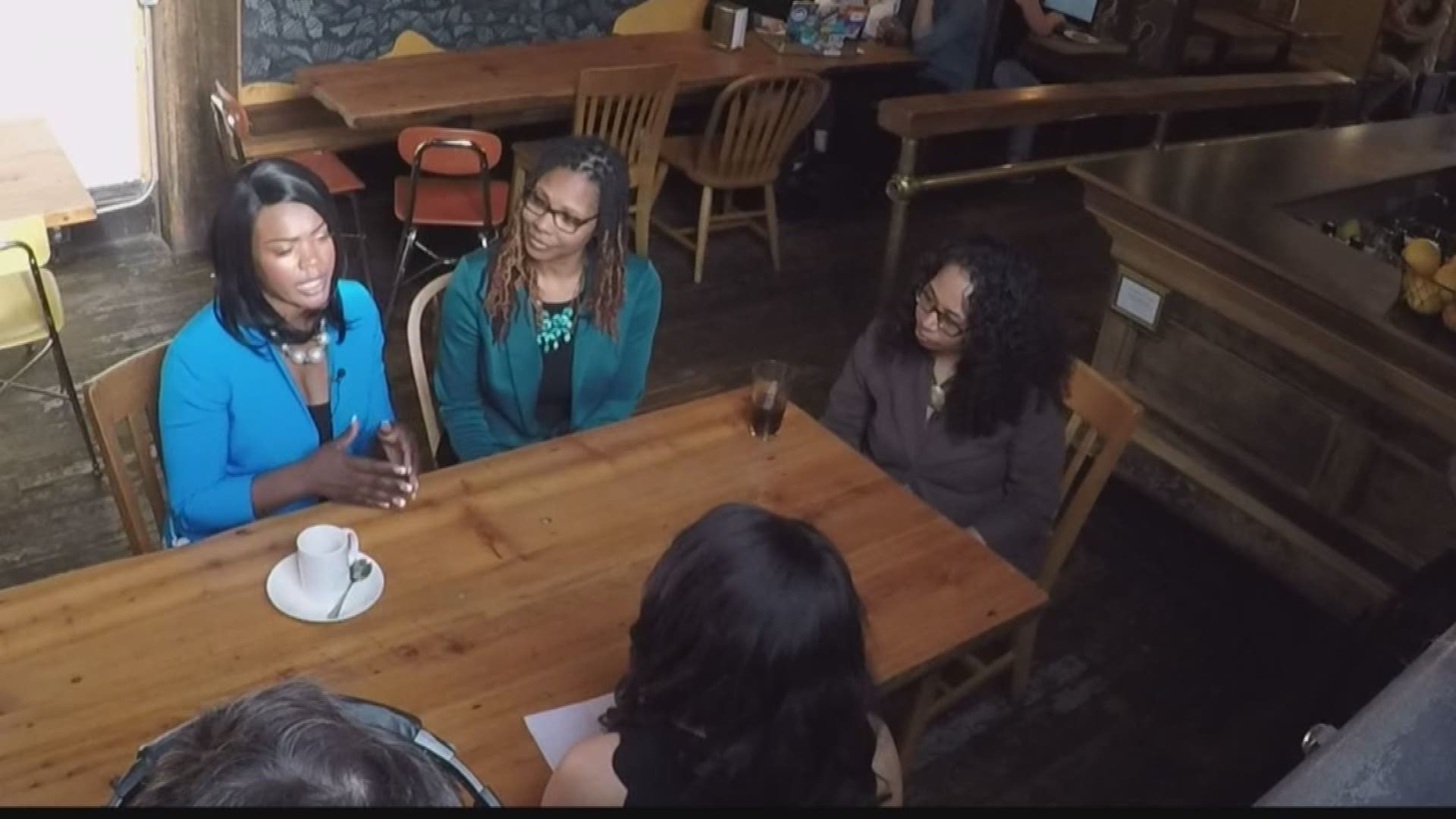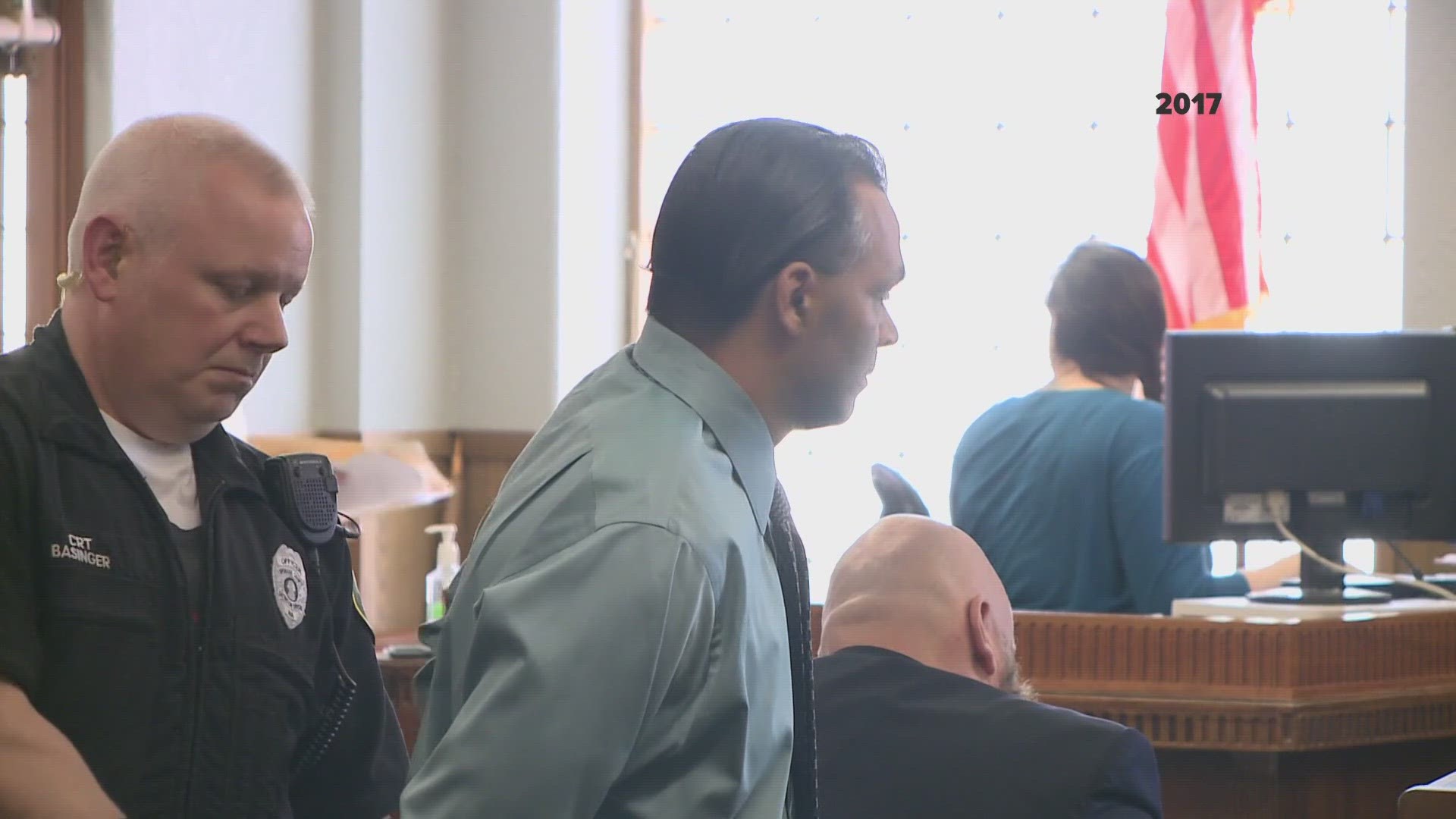SPOKANE, Wash. -- Just a few weeks after the release of the Netflix documentary called 'The Rachel Divide' three Spokane women and myself sat down to discuss identity and other issues they face.
The documentary centers around Rachel Dolezal, but it raises a lot of issues surrounding identity and what it is like to be a black member of the Spokane community.
As a journalist I wanted to give black women a platform to speak their truth and talk about their experiences. Together, we looked to shift the conversation from Dolezal to the issues black women face everyday.
WATCH THE THREE PART SPECIAL BELOW:
We met at Boots Bakery and Lounge in Downtown Spokane. I had assembled a roundtable of three women, all educated and successful in their own right. Kitara Johnson is the chief development officer for Excelsior. Excelsior is an organization that provides health and education support for youth. Nicole Rosenkrantz is just a few weeks into her new position as the community partnership manager for Spokane Public Schools. Before that, Rosenkrantz spent 17 years working with the juvenile courts. Angela Jones is the vice president of advancement at Eastern Washington University.
After introductions I asked them about their experiences in Spokane when it comes to their race.
"You find yourself trying to navigate the dominant culture as well as your own culture. How much do you change before you are no longer you when you look in that mirror,” Johnson said. "They see the color first, before they meet who the person is."
The discussion eventually moved to raising children. All three women are mothers and they have concerns about how others view and treat their children because of their race.
Johnson recalled when she moved into her new home her neighbor told her son to "be careful I thought you were breaking in".
Rosenkrantz said she worried about her son after they moved into a new neighborhood. She said he often plays soccer in the fields behind their home.
“You know he's a 14-year-old boy that always has his hoodie on, and is walking through the neighborhood. I made him go meet everybody, and I tell him 'you always meet everyone with a smile, big smile, show those dimples'. As I am having this conversation with him, I am thinking I shouldn't have to have this conversation, but I am absolutely going to because I need to know he is coming home to me,” Rosenkrantz said.
Jones became emotional thinking about her son being bullied because of his curly hair.
“He's got curls like I do. His curls are even bigger. So how do you deal with that with your words and your heart? But I cried because I shouldn't have to have this conversation with him because he is wearing his hair the way God gave it to him, not in 2018, and not in this city that I have invested in for 20 years,” Jones said.
Johnson was interviewed in ‘The Rachel Divide’. She said she felt like Dolezal perpetuated negative stereotypes of black women.
"They don't talk about how this affected black women. The reason why I say black women is because what Rachel did was play a caricature of what she thought an African American was, what she looked like, what she sounded like,” Johnson said. "Sometimes people will portray stereotypes of black women and those are that we are angry, that we are loud, that we are overweight or not able to articulate our words properly. So she was playing these stereotypes out every time she had an interaction with white people. When you talk about the struggle of the African American woman and being there, you don't know that struggle because you haven't lived that."
Jones said she stayed pretty quiet as the controversy surrounding Dolezal unfolded.
“I don't choose to say much very often, but that hurt our community, that hurt my heart, that hurt women, that hurt students that had been mentored, that thought they had someone helping them find the truth, because it is a struggle in the United States of America to be in the skin that we live in, so to find out that their truth was actually false, that they thought they were holding on to moving forward we have to heal that,” Jones said.
As our conversation came to a close my last question was simple: what’s next? How do we move forward with making Spokane a more accepting place? They all agreed it will take intentional efforts by everyone in the community.
“I've worked in two major systems, juvenile court and now Spokane public schools, and again the burden isn't on us to have the systems treat us right, it's for the systems to learn how to treat us right. And that's why I work for the systems because I am all about system change and helping it grow. But again at the end of the day that doesn't rest on my shoulders, that rests on the shoulders of the community,” Rosenkrantz.
“People talk about diversity, and diversity is just recognizing there are different types of people. We need to move toward multiculturalism, and that's how we get along in the same space,” Johnson said.
"Every single person has to be intentional and say ‘I am going to do my part today to create an understanding’. I think there is a responsibility, but everybody's responsibility is a little different, and what I struggle with is, people are not owning it in this community,” said Jones.
I left the table feeling hopeful and encouraged. Spokane has so much to offer. There is a reason it is becoming a popular place to move and raise children. And there is always room for more understanding and acceptance.


